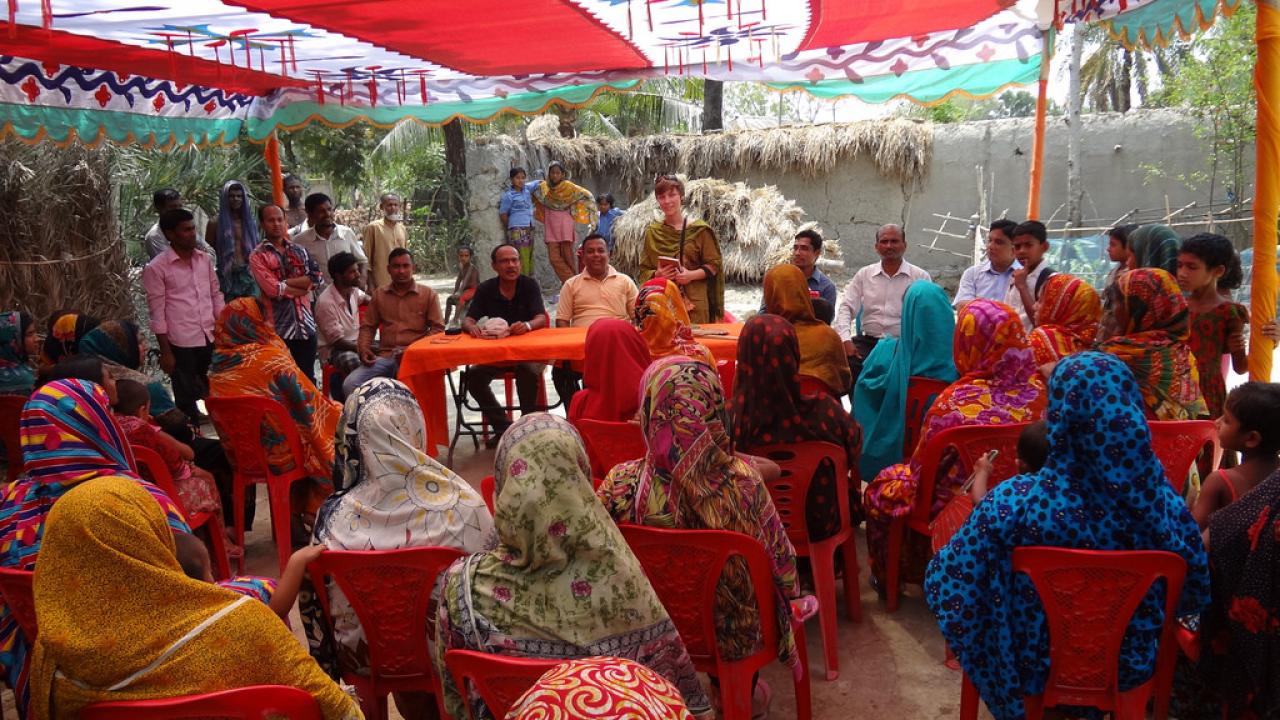
Trellis Fund Opens Door To Developing World
UC Davis soil science graduate student visits eighth-most populous country to come up with alternative solutions.
Editor’s note: Dec. 3 is the deadline for graduate students to apply for new Trellis Fund projects in Bangladesh, Ethiopia, Ghana, Guatemala, Kenya, Malawi, Mali, Nepal and Zambia. The program is seeking students with expertise in project management, seed systems, horticultural crop production, postharvest practices, integrated pest management, pesticide safety, marketing, soil science, home gardens, and more.
During her first visit to a farm in Bangladesh, Hannah Waterhouse turned a corner to find not just one farmer—but 60 women and children waiting to meet her.
“It was overwhelming,” she said. “They’re dealing with such real and scary issues that you want to be able to provide something. And this was just my third day in the country.”
It was the dry season, when most homestead gardens with saline soils and little fresh water produced stunted plants in crusted soil. As a UC Davis soil science graduate student, Waterhouse knew how California farmers would deal with such problems, but her visit to the world’s eighth-most populous country clarified why the same solutions weren’t realistic in Bangladesh. Instead, she worked with professionals from Helen Keller International to learn other approaches and to share her soil testing expertise.
Waterhouse’s work in Bangladesh was made possible by the Trellis Fund, a program that pairs up graduate students from select universities in the United States with organizations in developing countries. Each student serves as an agricultural consultant on a development project for six months. The program is offered by the Horticulture Innovation Lab at UC Davis, with funding from the U.S. Agency for International Development. First proposed by a UC Davis student, the Trellis Fund continues to be managed by graduate students at the Horticulture Innovation Lab who are considering careers in international project management.
“I’m behind the scenes, making sure the program runs smoothly, with planning, logistics, grant evaluation, contracts, and reporting,” said Kelsey Barale, an International Agricultural Development graduate student and Trellis Fund coordinator. “Being able to see multiple projects through—from start to finish—is good experience to see what works, what doesn’t, and how to improve these types of programs.”
Since the program began in 2011, 38 students (mostly from UC Davis) have worked on projects in Africa, Asia, and Latin America. Completed projects trained more than 3,800 farmers, with more than 100 demonstration plots and nearly 200 training meetings.
Working on a Trellis Fund project provides students a chance to apply academic knowledge to real-life situations, gain experience as consultants, build networks, and broaden their international portfolio. For Waterhouse, who had no prior experience with Bangladesh, the opportunity may help shape her career.
“I would like to keep working in Bangladesh,” she said. “It is a place at the forefront of these issues we talk about for 2050: population boom, climate change, food security issues. It was a profound experience, that’s for sure.”
To learn more about the Horticulture Innovation Lab Trellis Fund, click here.